First Look: Harley Benton JA-60CC – the best budget Jazzmaster?
You can imagine my surprise when Harley Benton introduced the JA-60CC this past October. I was especially drawn to the Pink Shell Edition. So I inquired if they would dare to let a passionate Jazzmaster aficionado do a test run. They said yes!
Originally published on Gearnews.de by Claudius Grieger, translation by Julian Schmauch.
Harley Benton JA-60CC: What’s inside?
The Harley Benton JA-60CC is a low-budget guitar, no question. At 179 Euros, it costs less than some high-grade replacement pickups. Or as many as three sets of bass strings on the pricier side. Based on my own experience so far, most budget cuts happen for the finish, the hardware, and during quality control. So, I really went looking. But I could neither find the any damage nor badly painted spots in the finish nor did any of the frets split my fingers or break in any way.
One of the frets had been “repaired” into the binding after the fact, but that was hardly visible at all. The JA-600CC’s neck and fretboard really do look good and could easily fit on a Fender. Only the block inlays and the binding aren’t my taste at all, so fair enough.
Half-time score: good frets, good finish, clean binding, neck feels good. What’s the catch with this budget Jazzmaster?
First thing I notice: the neck has not been properly set up. It’s almost banana-shaped toward the upper frets which makes the string action quite high. And for my taste, the strings that came with it are a bit too thin. If I play a little rougher, there is a pretty audible “ploing” vibrato. Some might like that, but that does not help my desire to find the next all-rounder guitar.
So, I changed the strings. While I was doing that, I also switched the neck adjustment as the one that came with it was working ok at best. An Allen key is included, by the way, so if you ever wanted to get down to adjusting the neck curvature yourself, there you go. It’s worth mentioning, however, that the key barely fits. I was reminded of the “tools” you get for assembling your new shelf or couch from a certain Swedish furniture company.
Differences between the JA-60CC and a Fender Jazzmaster
The JA-60CC looks a lot like the original from Fender, which is surely no coincidence. Especially when it comes to the very authentic-looking pickups, the pickguard, and the body’s offset form, the JA-60CC comes really close. But the devil is in the details.
Generally speaking, the body is a bit smaller. Therefore, the JA-60CC is quite a bit lighter, but it still can’t beat my supremely light original Jazzmaster. You can feel it when you carry both at the same time. In addition, the armrest at the pickguard is less rounded and a bit thicker which does strike me a bit uncomfortable. But it’s still so much better than a Tele. The pickguard is shaped a bit differently at the top and the Jazzmaster’s second channel is missing. That one changes resistors for the neck pickup and creates a much more muffled, ehm I mean, “warmer” sound.
No vibrato, more Rock
The typical vibrato system is missing as well. There is, however, a Stoptail and TOM-Style bridge combo that you’d expect from a Gibson. For me personally, that makes the guitar lose some of its charms when you play it. You get much less wonderfully vibrating overtones when you play past the bridge. It does not have to be a disadvantage, but that is one of the advantages of the original Jazzmaster. The JA-60CC is much more straight Rock. And that’s ok. Maybe it just takes a bit of getting used to. The pick guard’s mint color is very becoming to the guitar and matches well with Shell Pink. And setting it up is quite a bit faster with the TOM, if you ever needed to do that.
Concerning the tuners: they work ok. They’ve been set up well and keep the tuning well enough as far as I can tell. They are no-name tuners, but at least they’re separate ones with closed mechanics. You plug-in the string and don’t have to pull it through – just like the original. When it comes to the rest of the hardware, I can’t complain. The knobs turn without a stumble, neither too soft nor too hard. The PU selector moves a bit stiffly, but it stays better in position when I accidentally brush by than on my Fender.
Do the pickups sound good?
The question many probably have on their mind: do the Roswell pickups sound like the Jazzmaster pickups? Honestly? I don’t really know.
I’d have to A/B them, unscrew, solder, and plug them from one guitar into the other – a bit too much if you ask me. They do just fine for my taste. They are no premium pickups either. But I have also played some really bad sounding stock Jazzmaster pickups – it must have been one of the Mexico series. Or look at the Squiers – no premium picks here either. From my experience, these two would be ruled out pretty much instantly. But the Roswells do better.
They’re no match for my American Vintage 65 pickups in my Jazzmaster. They do sound a bit louder and a bit more high gain. But if this is due to the pickups or the combination of different strings, different woods, and a different weight… it’s equally possible. Maybe it’s just I’m just imagining that more expensive means better sounding? Well, my DAW and my analyzer confirmed my judgment. My ears are not that deaf yet.
But if you’re on the hunt for that Jazzmaster blast, you might consider switching to different pickups. But do try them first. Don’t believe everything you read on the internet. In the end, we’re all different. I think. The Rosswells sound just fine.
- Bright Pink! · Source: Claudius Grieger
- The head · Source: Claudius Grieger
Is the JA-60CC a budget Jazzmaster?
Yes and no. If you’re looking for looks, this is the one. The finish is fine, the look is kind of, too, if you ignore the headstock and if you tweak it a bit, you’ll get a pretty ok electric guitar. It’s still no match for a real Fender Jazzmaster, but it might just be the alternative you’re looking for. Especially if you want a good-looking guitar and not a vibrato system. Never forget: The JA-60CC costs 179 Euros*. There are bound to be some limitations compared to the Jazzmaster well over 1000 Euros. At least in my opinion.
If you’re on the lookout for a new budget guitar, do test drive this one. Especially if you’re new to offset guitars. And if you like an awesome-looking guitar.


Find out more on Harley Benton and the JA-60CC
Videos on the JA-60CC and the Jazzmaster
You are currently viewing a placeholder content from YouTube. To access the actual content, click the button below. Please note that doing so will share data with third-party providers.
Note: This article contains affiliate links that help us fund our site. Don’t worry: the price for you always stays the same! If you buy something through these links, we will receive a small commission. Thank you for your support!
7 responses to “First Look: Harley Benton JA-60CC – the best budget Jazzmaster?”
 4,5 / 5,0 |
4,5 / 5,0 | 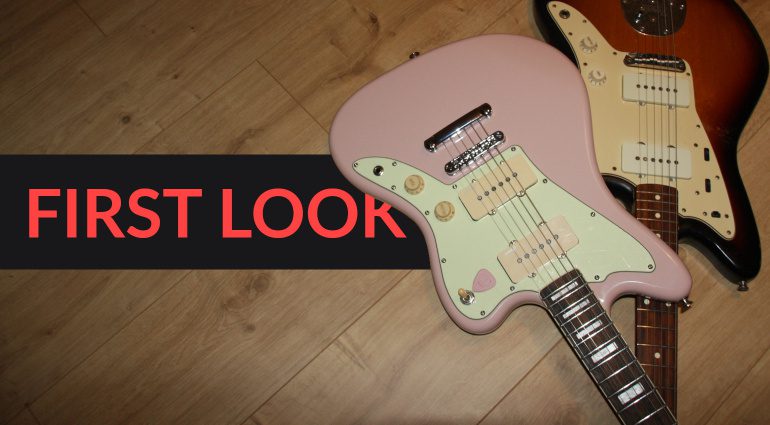
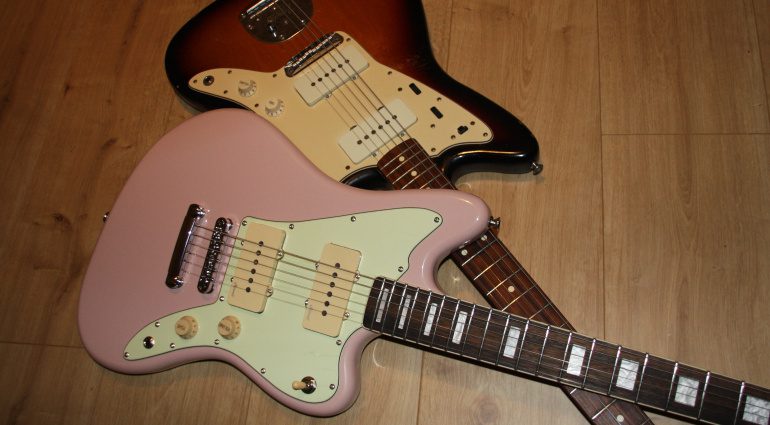
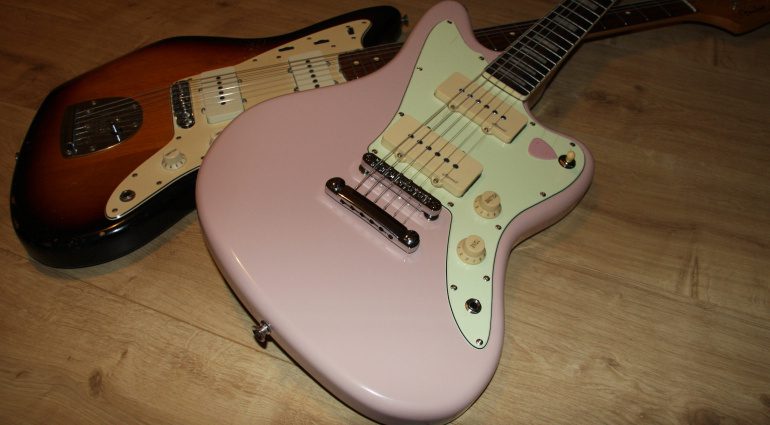



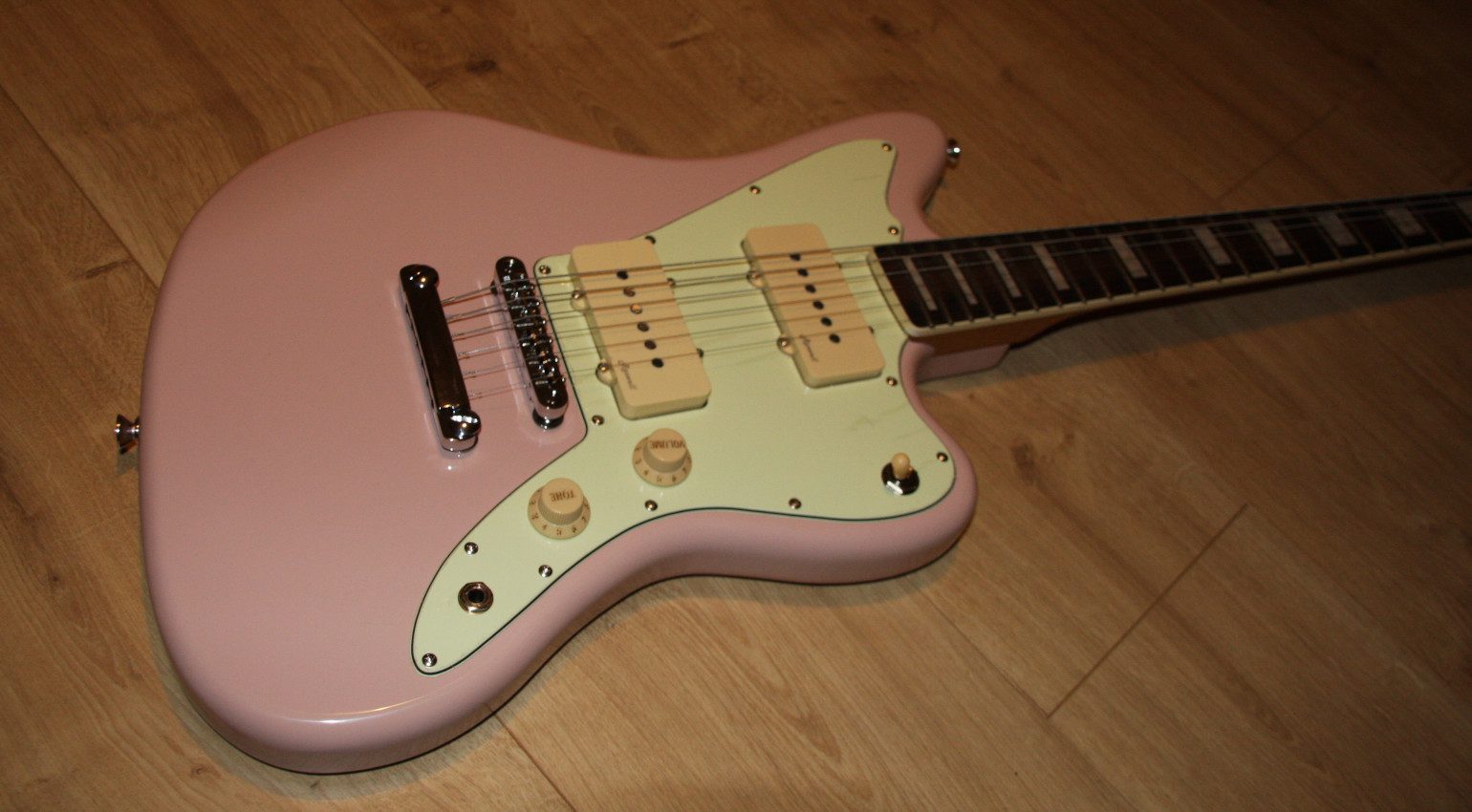

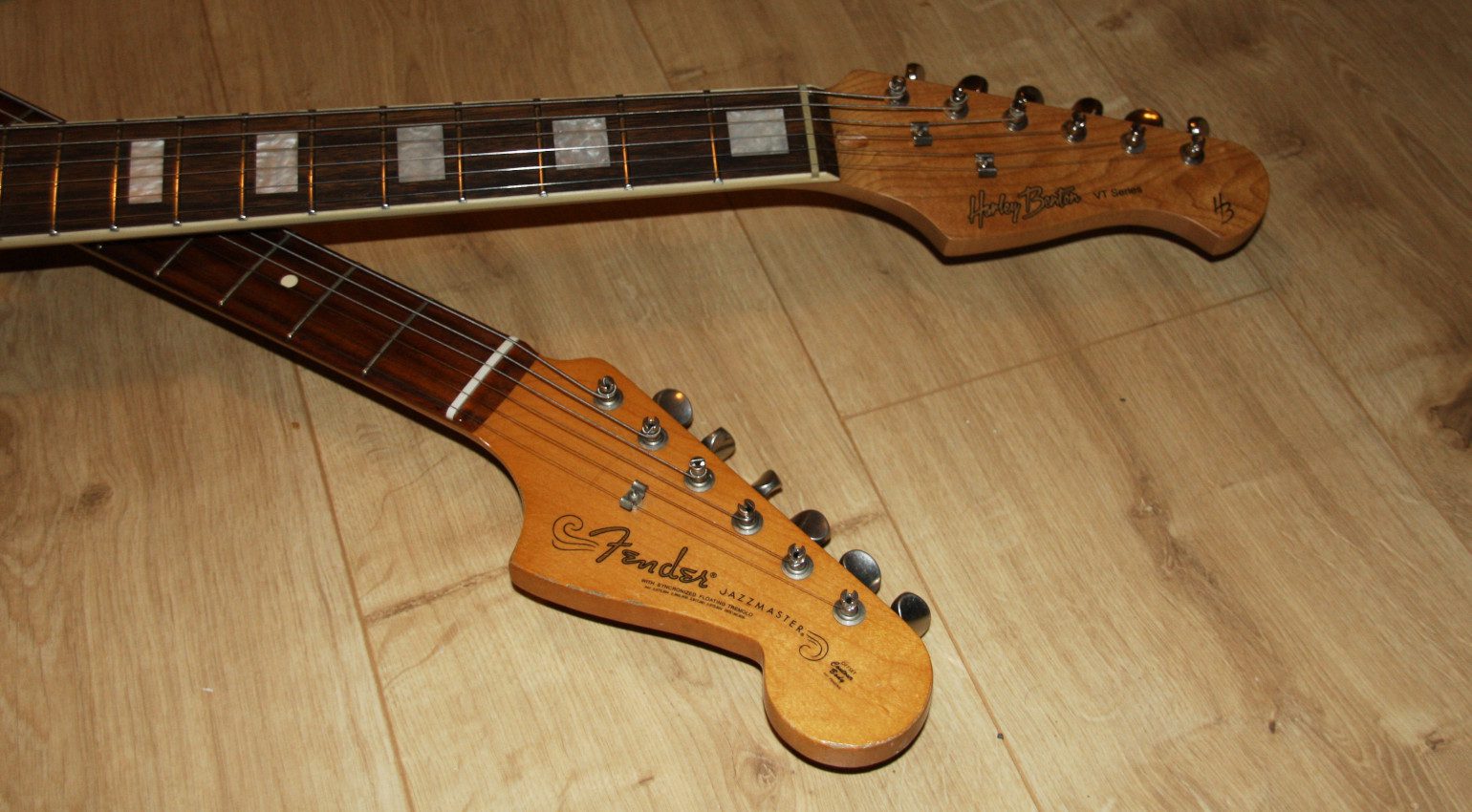
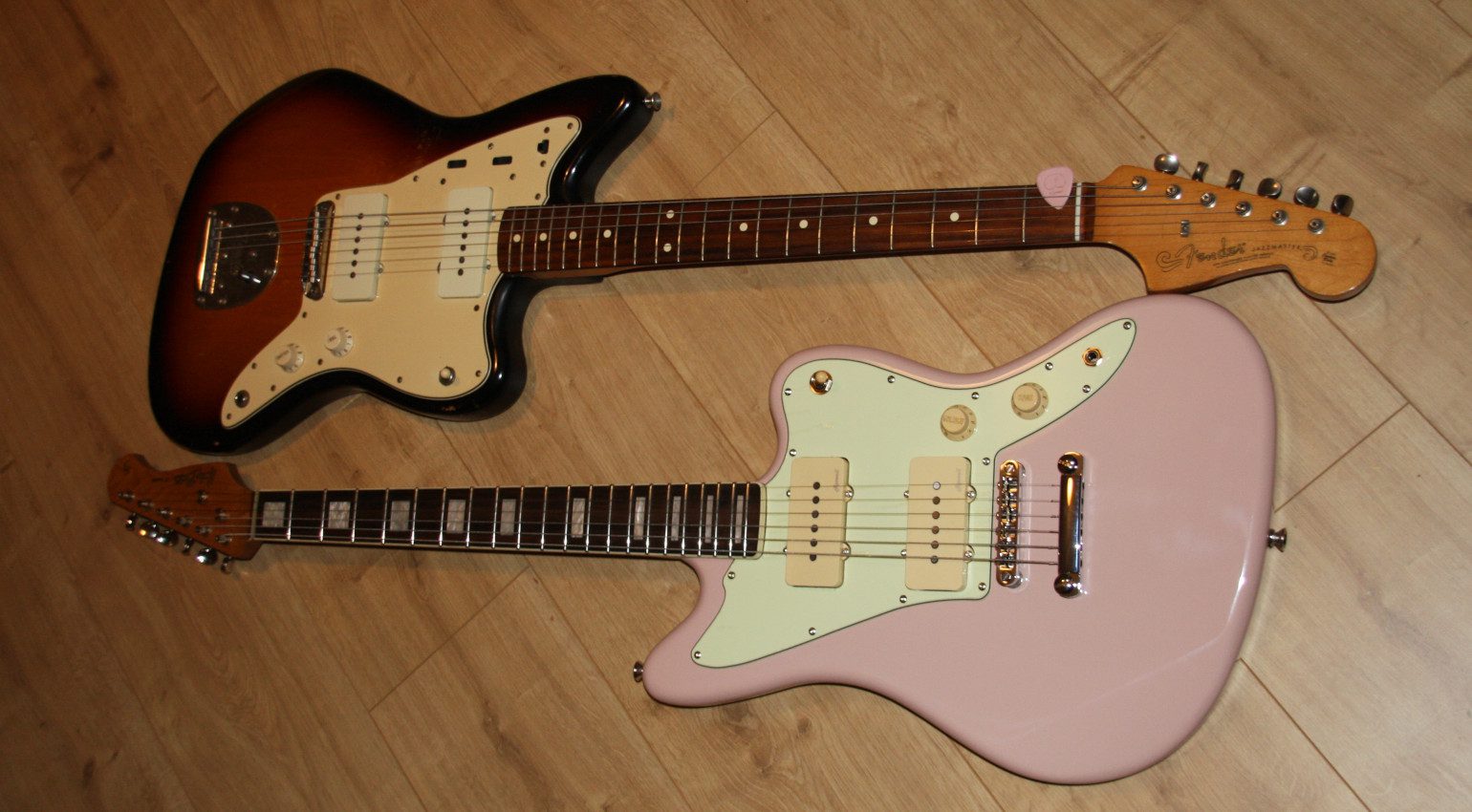
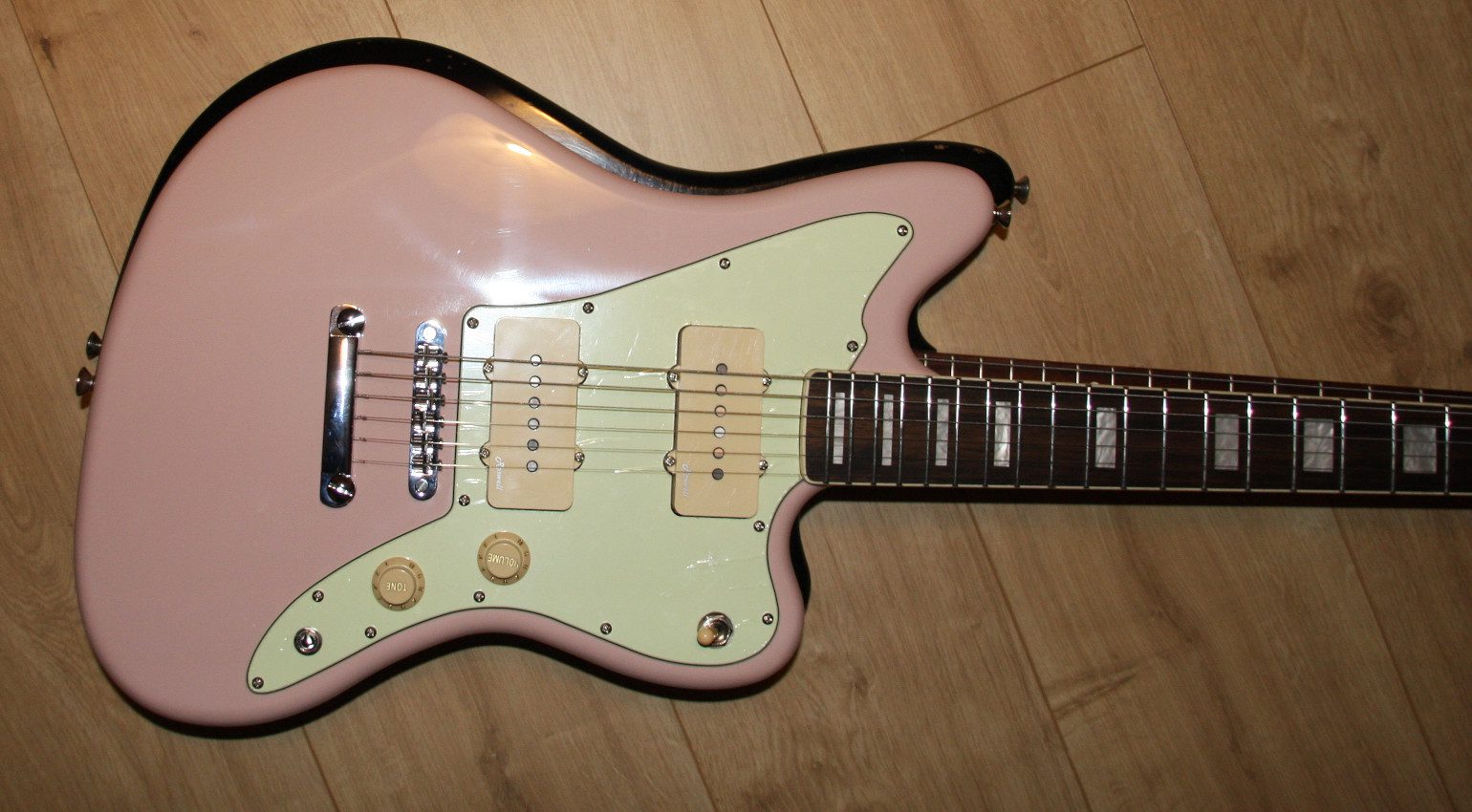
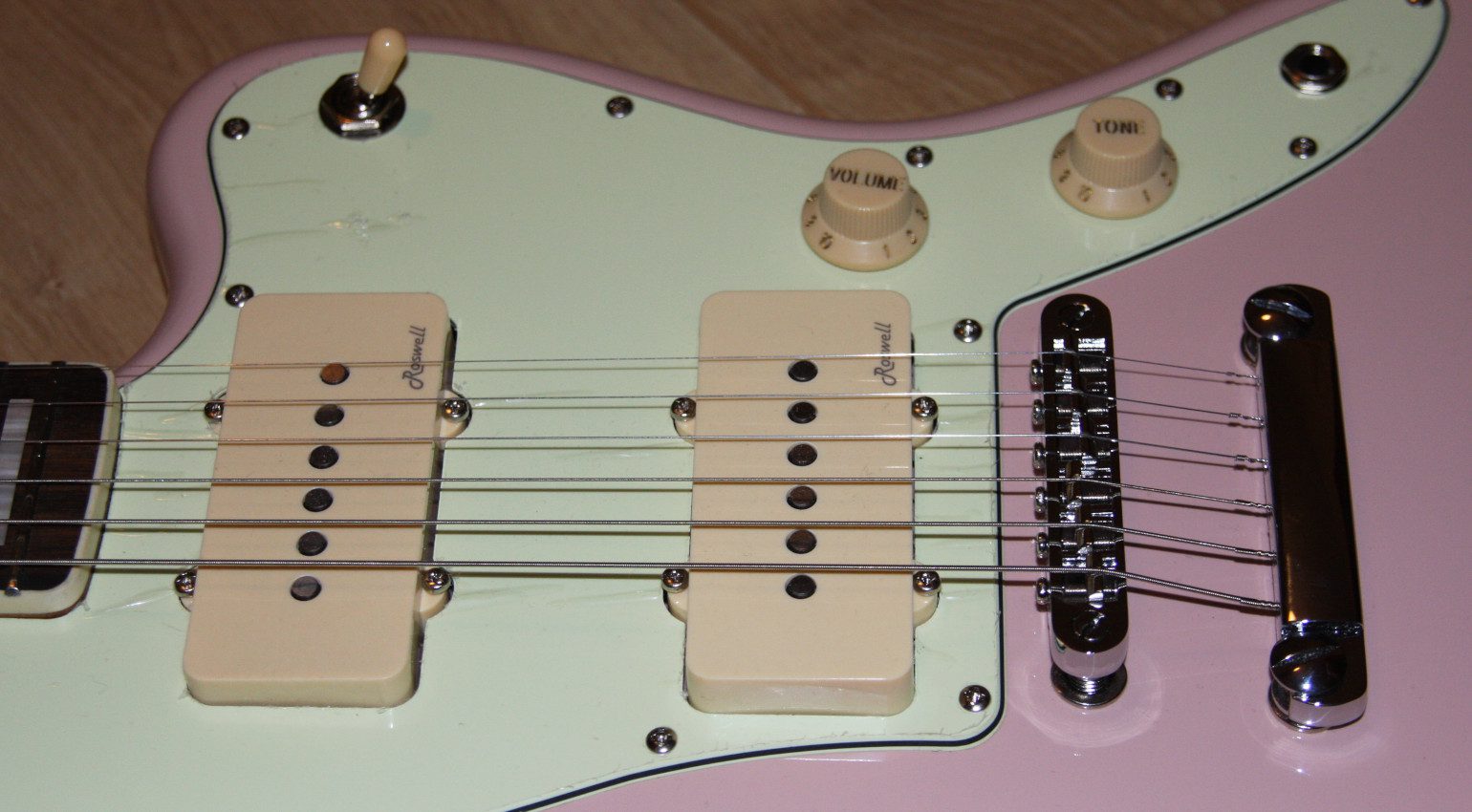
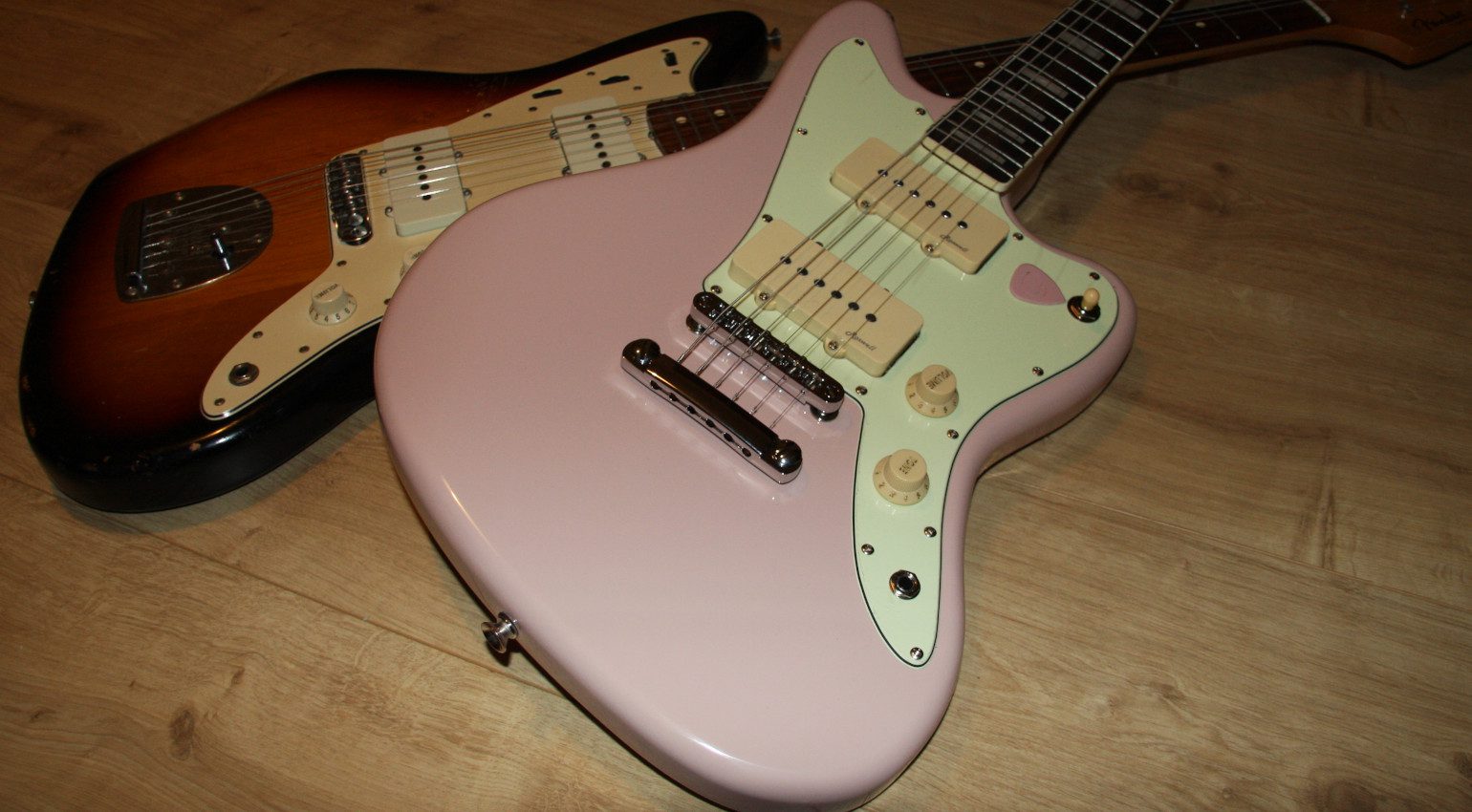
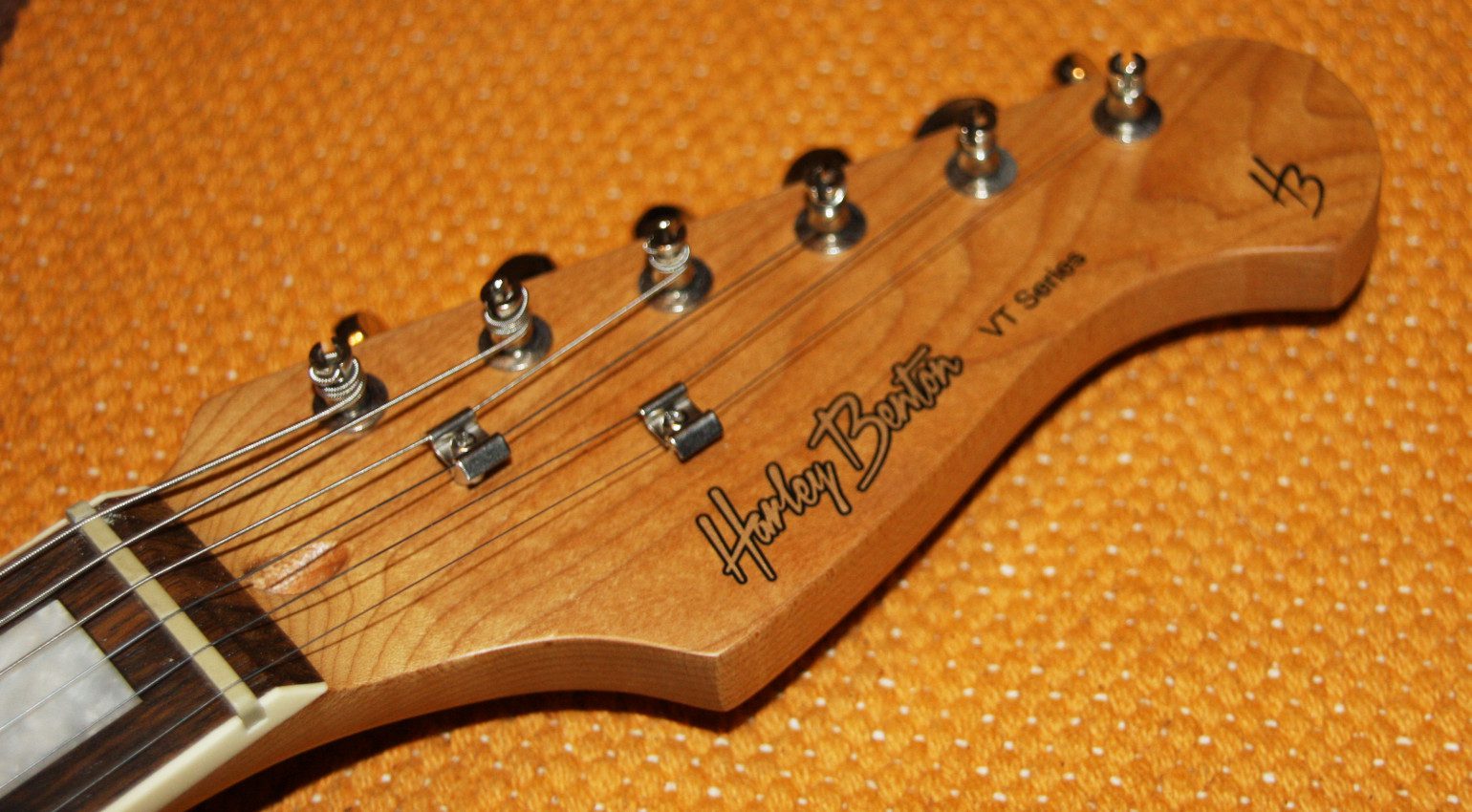

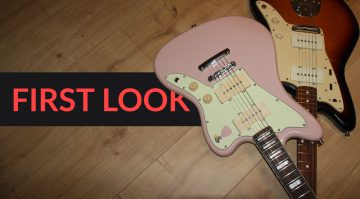

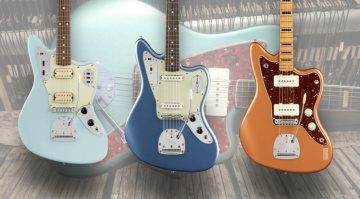



Again, how can this Harley Benton, whatever, company possibly even buy halfway decent components for this amount, let alone assembly, expenses , profit, etc. ? This makes no sense to me.
I’ve never played one, but Will Ray, of the Hellecasters, who’s had signature guitar models from both Fender and G&L really likes his Harley Benton.
https://www.premierguitar.com/gear/will-rays-bottom-feeder-a-european-budget-axe-swings-american
Let me help you. This from a PRS Co-founder…
PRS pays $130.00 for a Korean Made SE to be bulk delivered to their Maryland CDC. They then sell the SE to the shops for $325.ish, and the shops put them on the wall for $700.ish. If a flaw exists they are instructed NOT to fix it, but to cut off the headstock, put it in a box, and once a year send the headstocks to PRS for a complete replacement.
Thomann is huge with considerable economies of scale and no middle man markup. So in translation, They may pay $115.00 for the same level construction or even $100.00 with unbranded hardware slightly lower grade hardware, and then mark it up 100%-125% and sell it direct to you. Hope this helps.
roswell pickups ARE squier pickups, ya dingus!
Roswell is an independent OEM pickup manufacturer with no affiliation to FMIC: https://roswellpickups.com/about-us/
Badass guitar
Nice guitar I want one
You are currently viewing a placeholder content from Facebook. To access the actual content, click the button below. Please note that doing so will share data with third-party providers.
More InformationYou are currently viewing a placeholder content from Instagram. To access the actual content, click the button below. Please note that doing so will share data with third-party providers.
More InformationYou are currently viewing a placeholder content from X. To access the actual content, click the button below. Please note that doing so will share data with third-party providers.
More Information